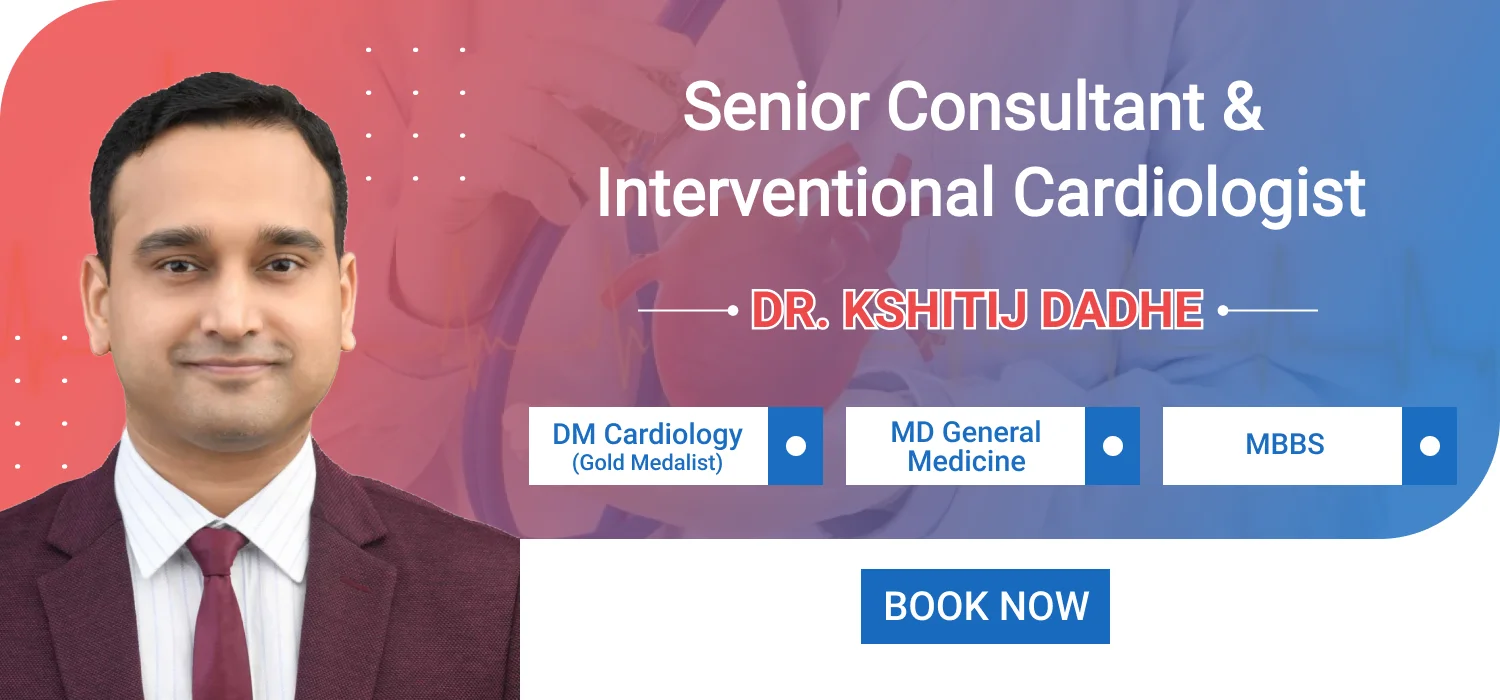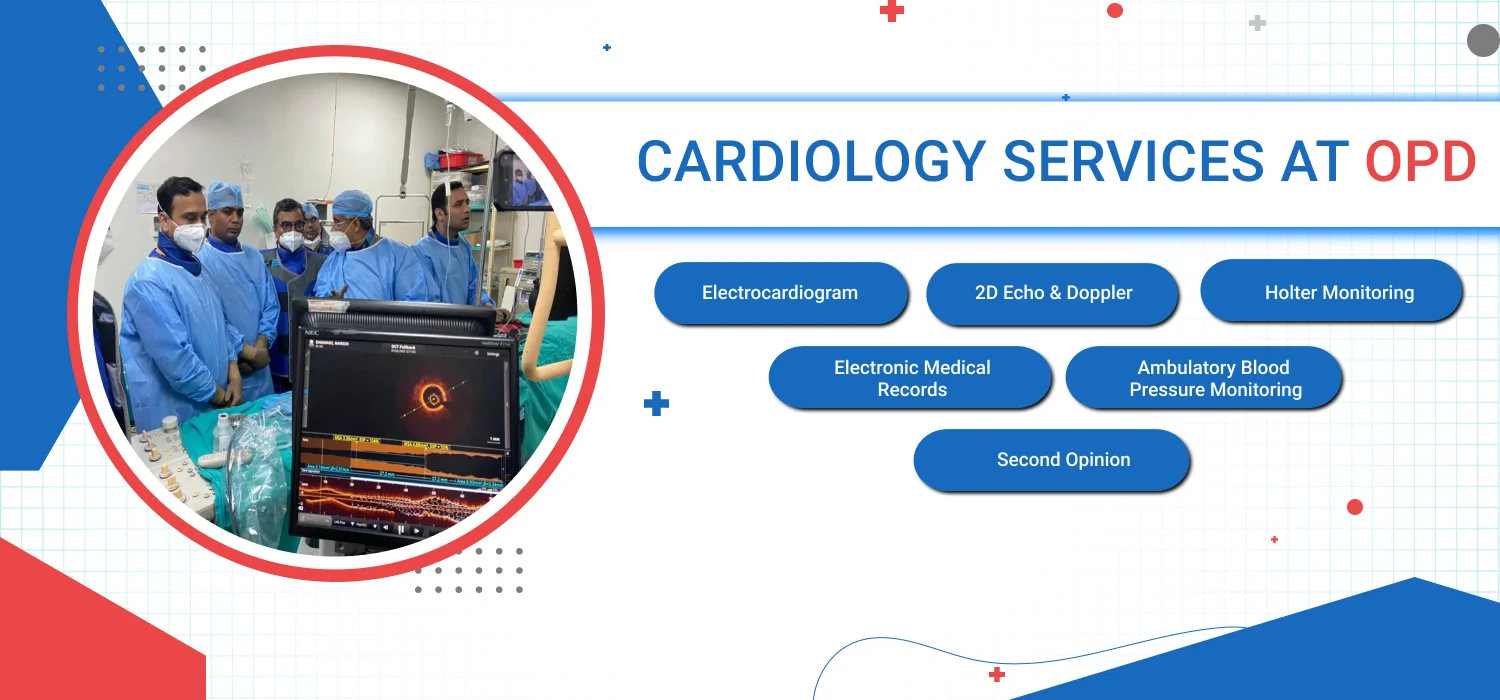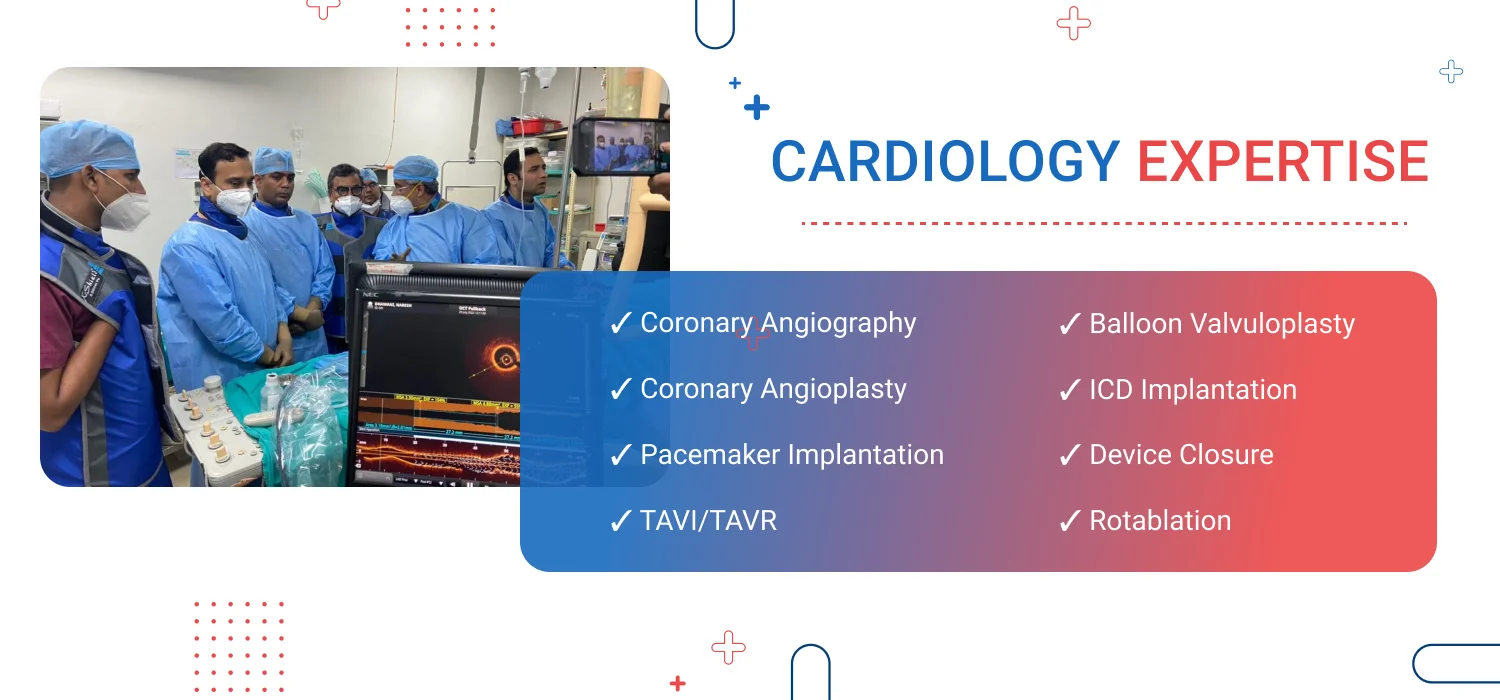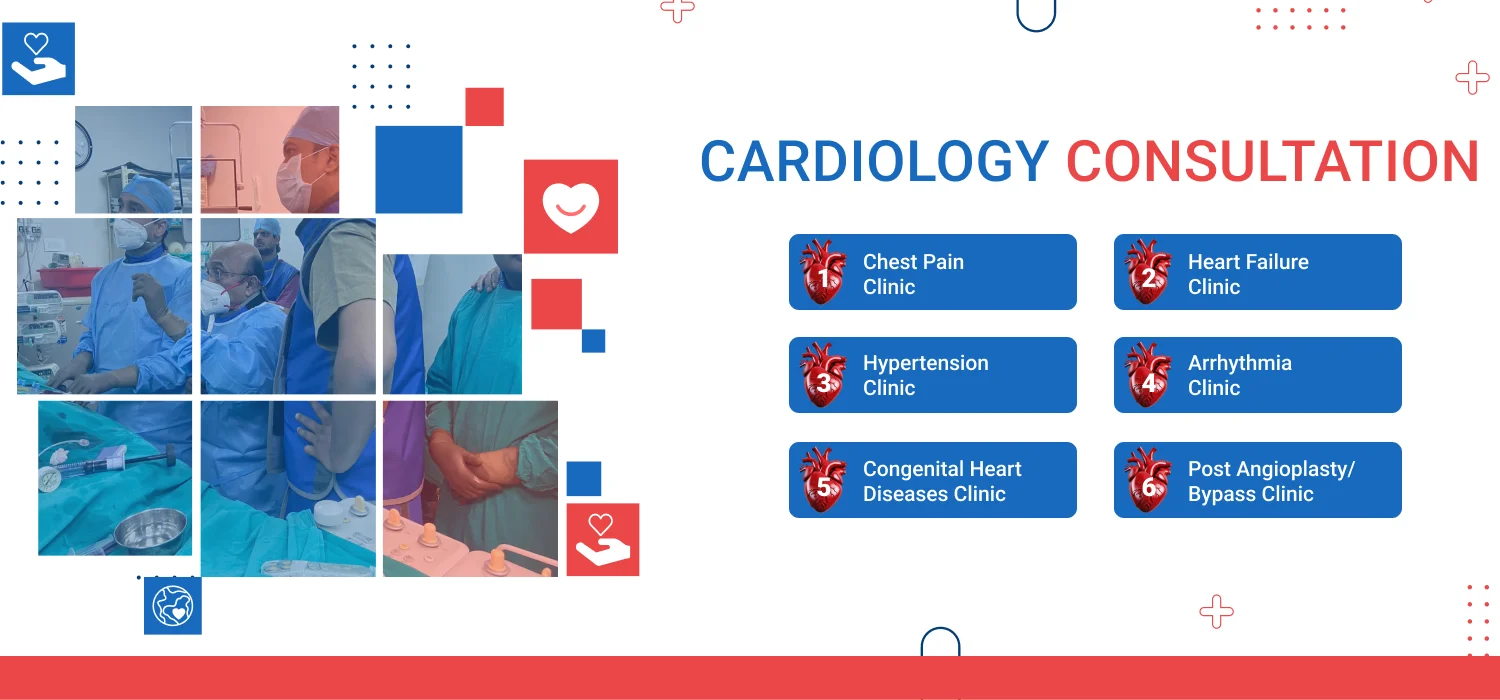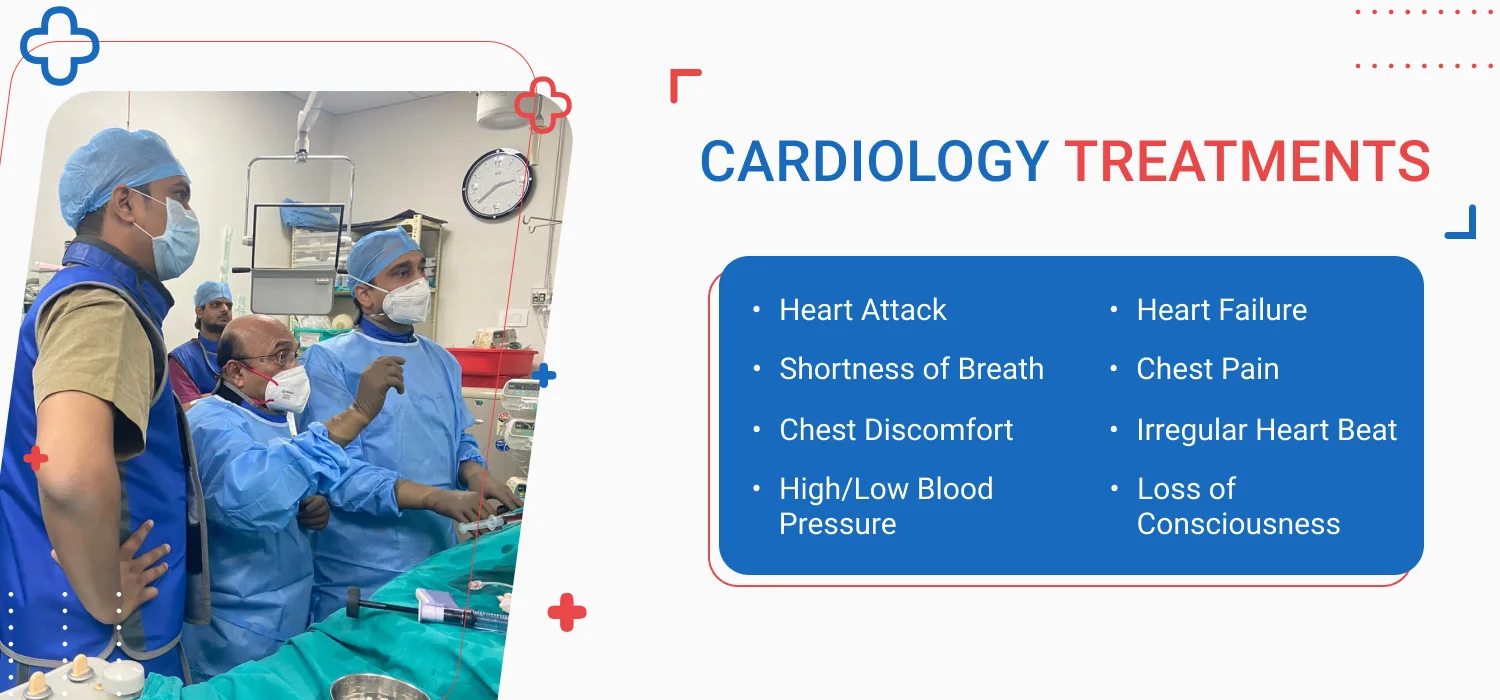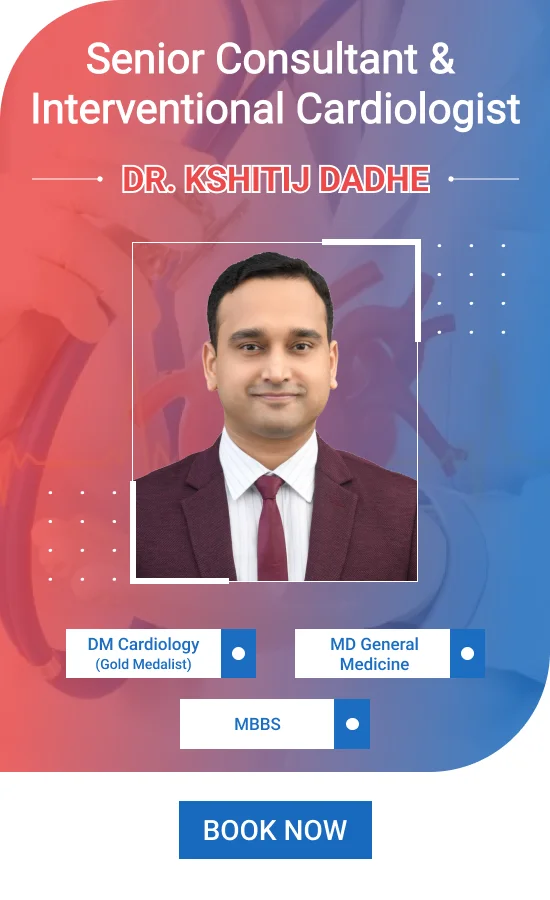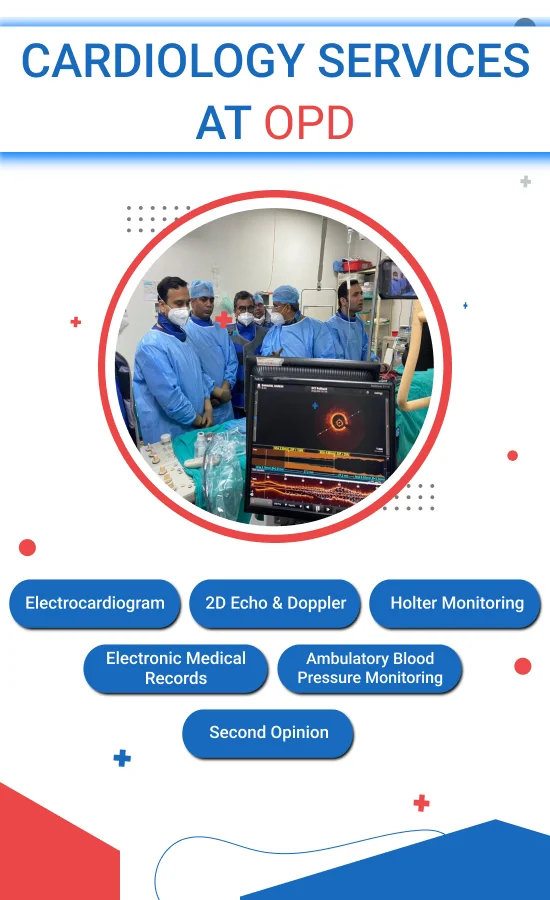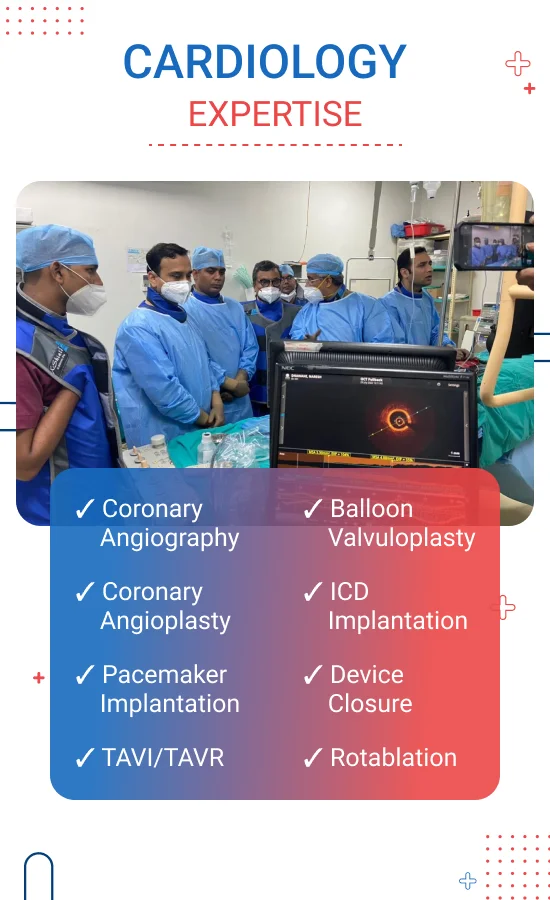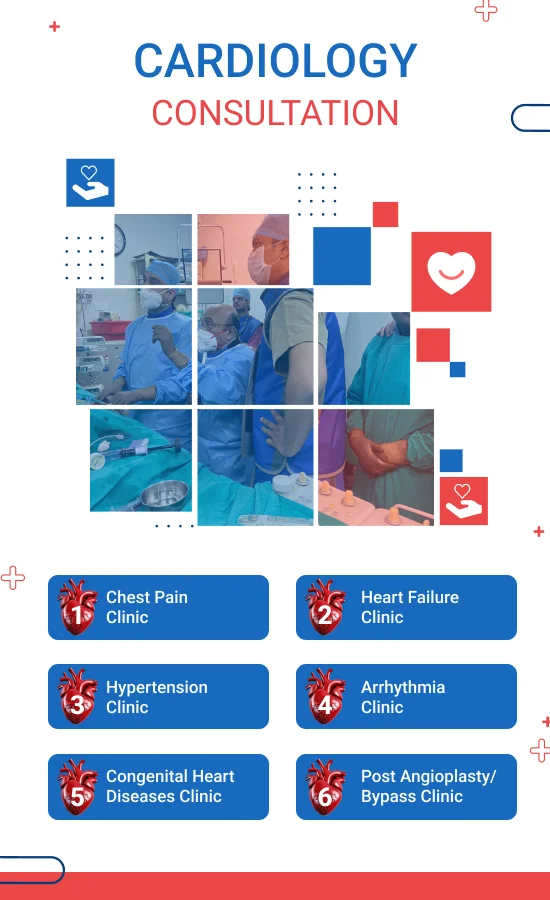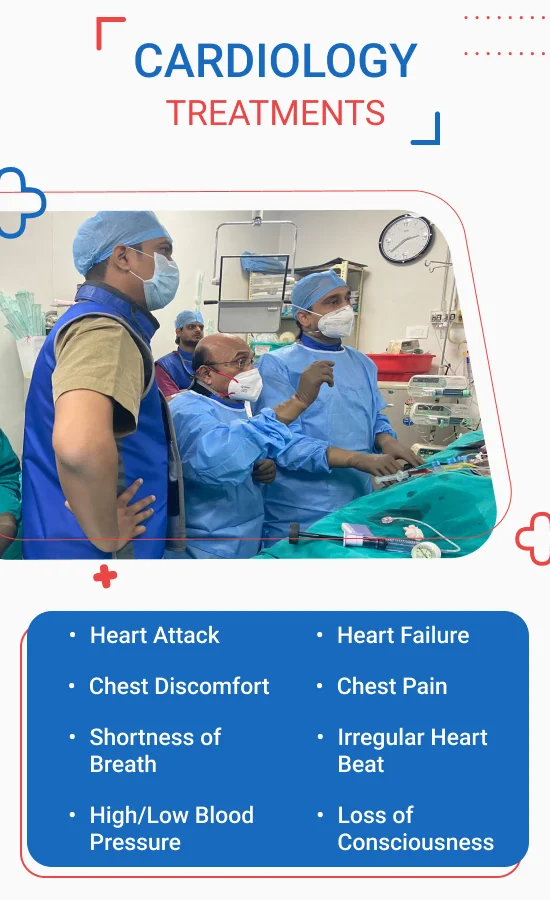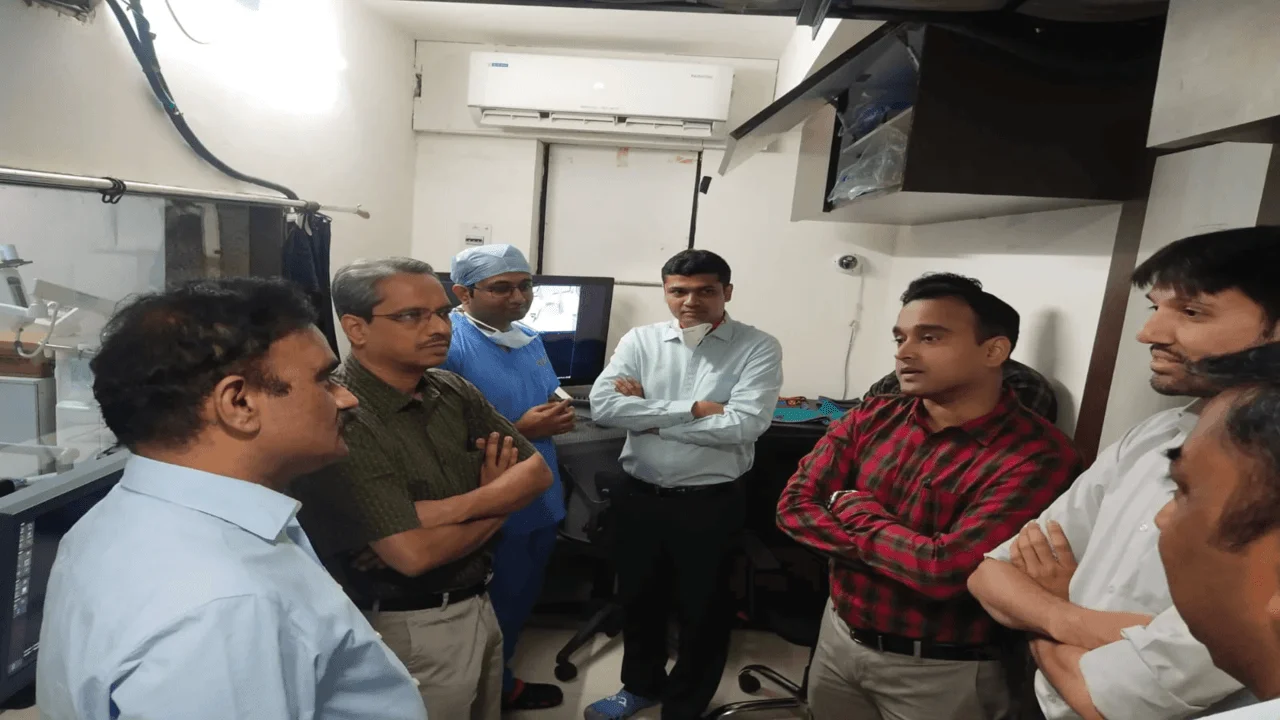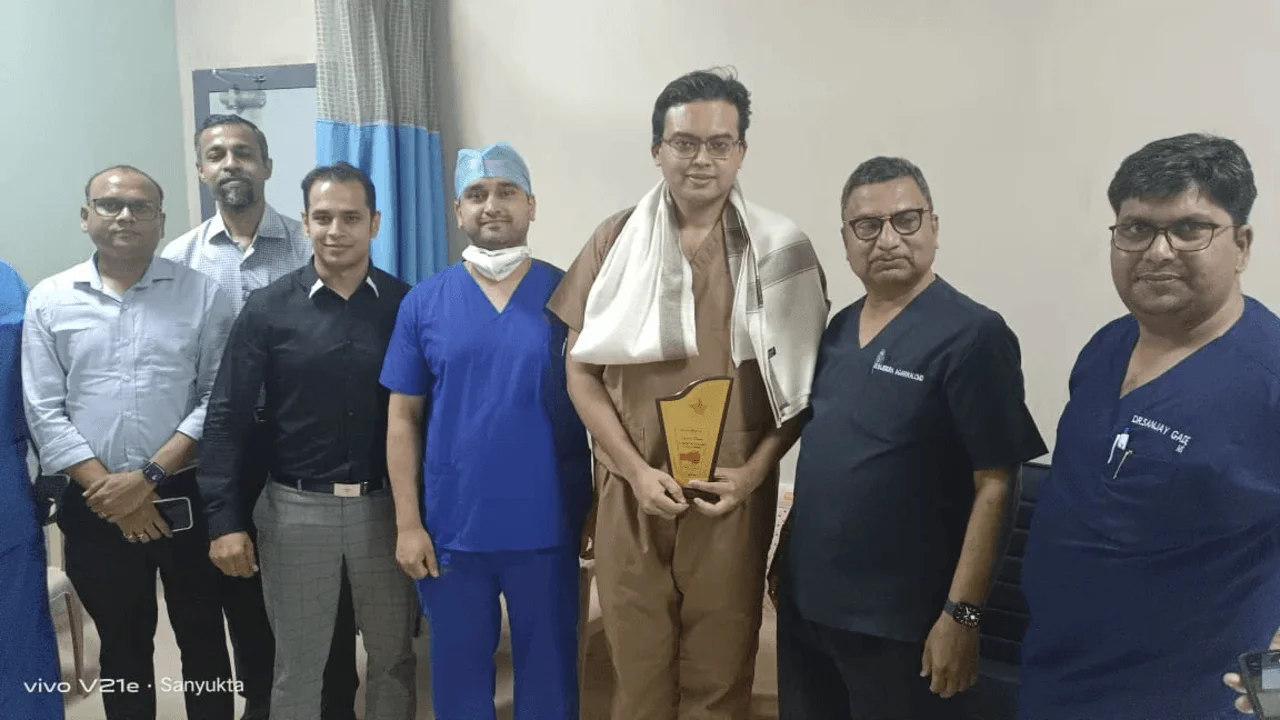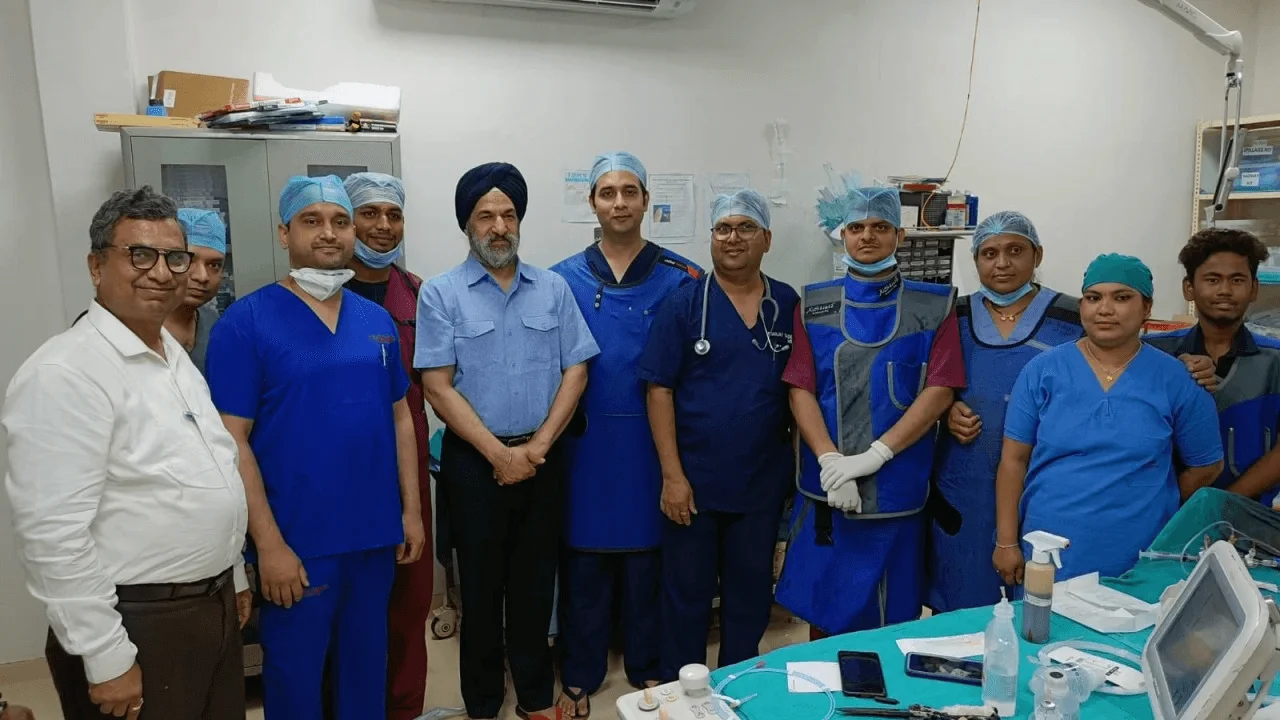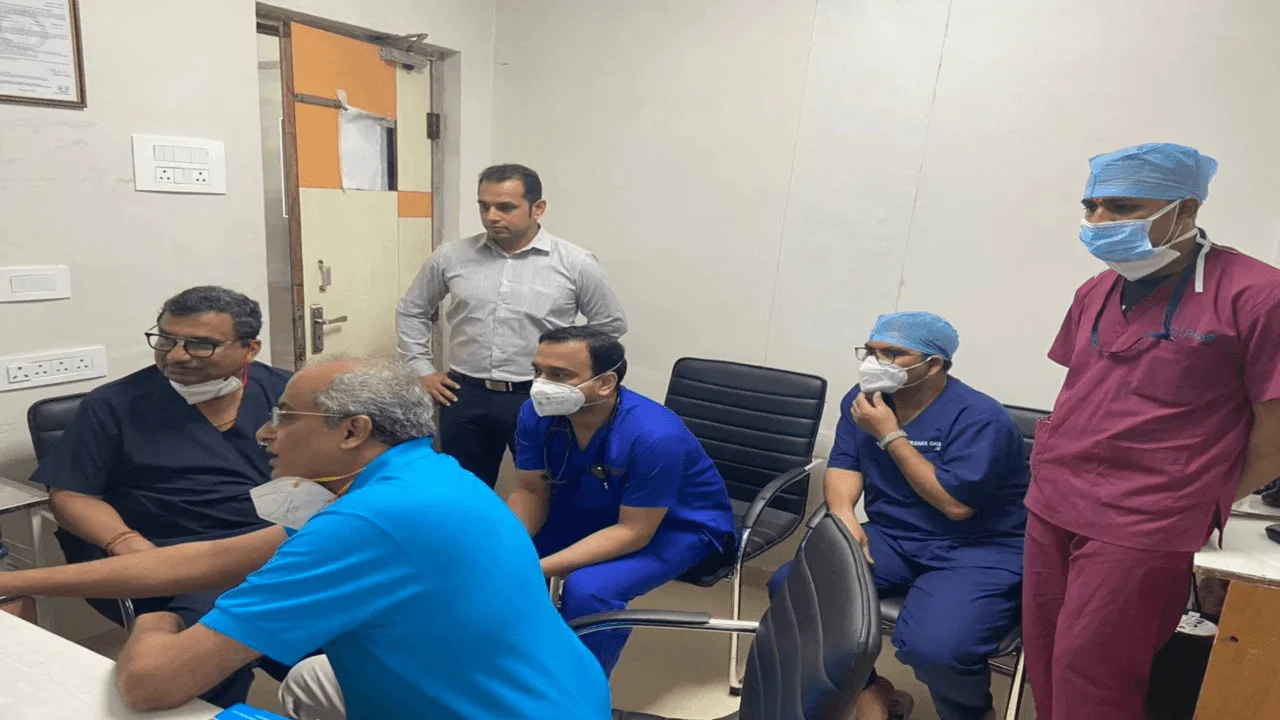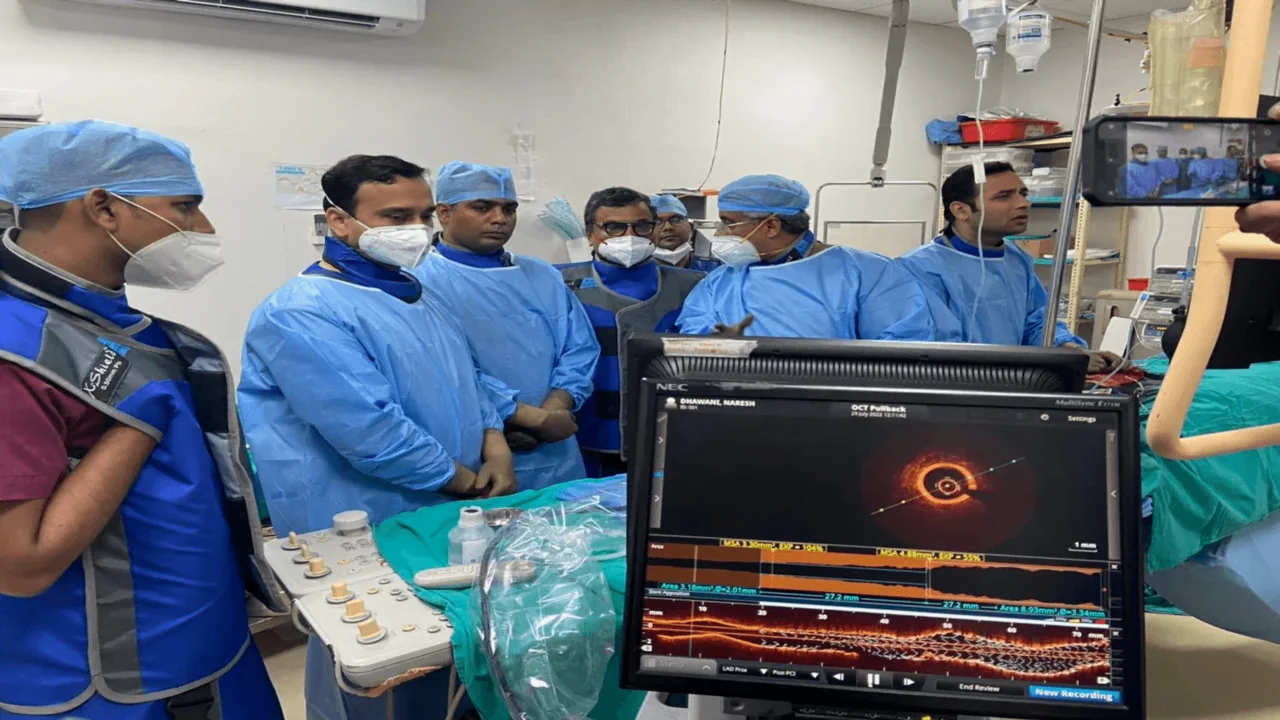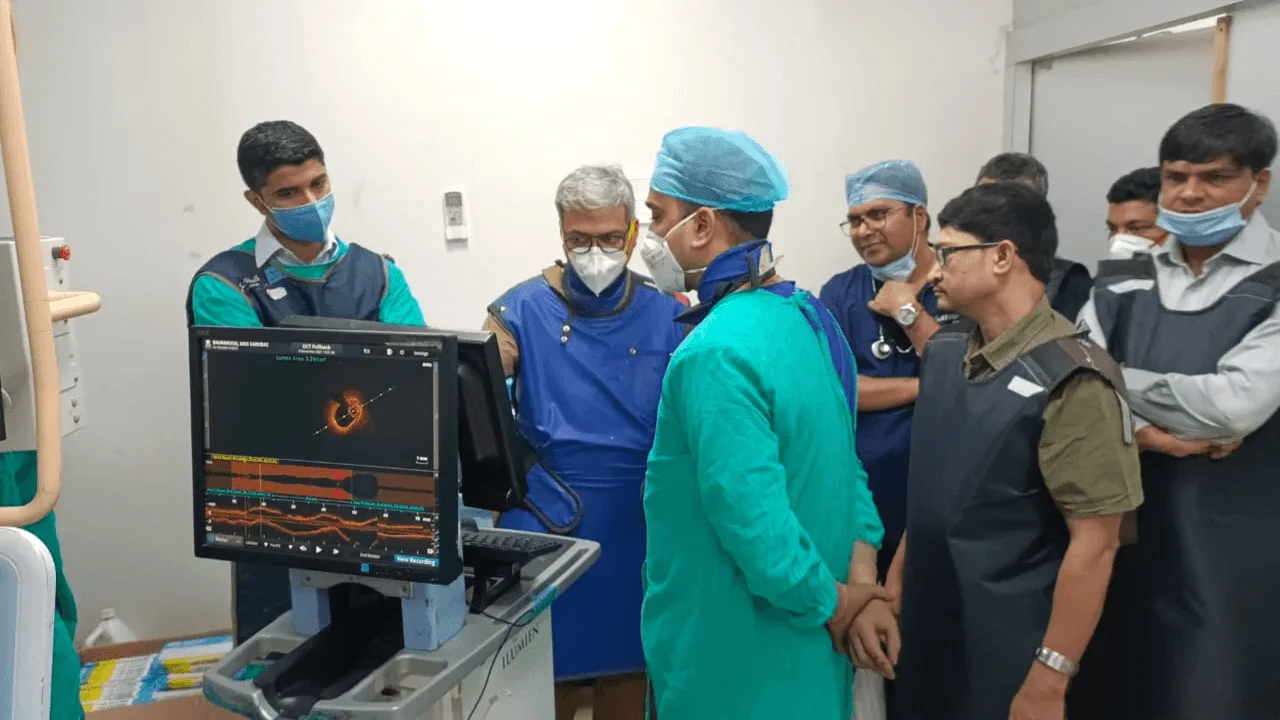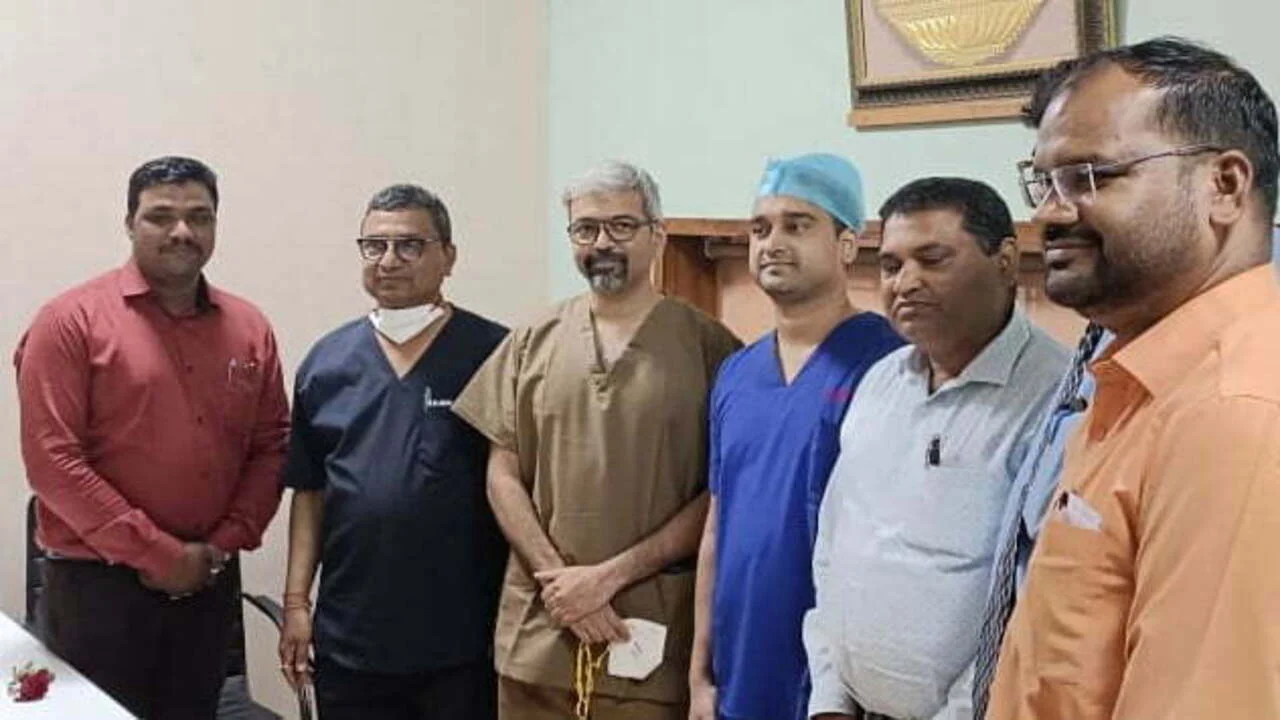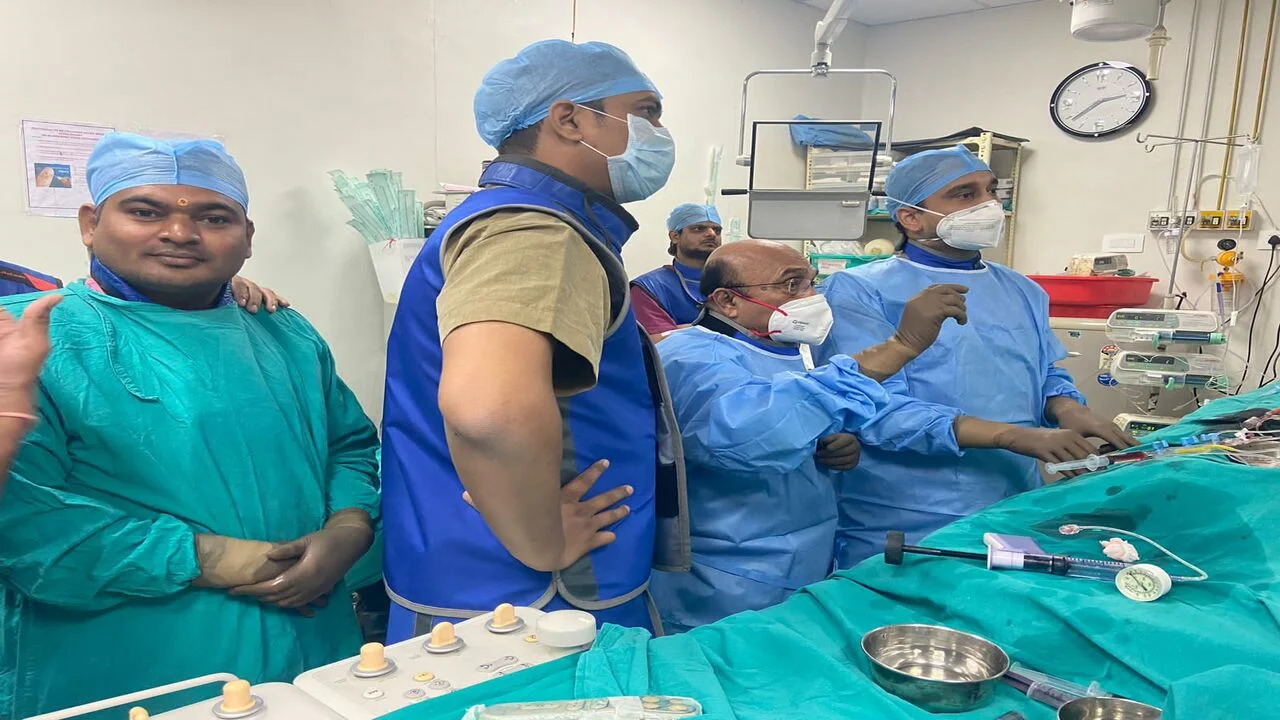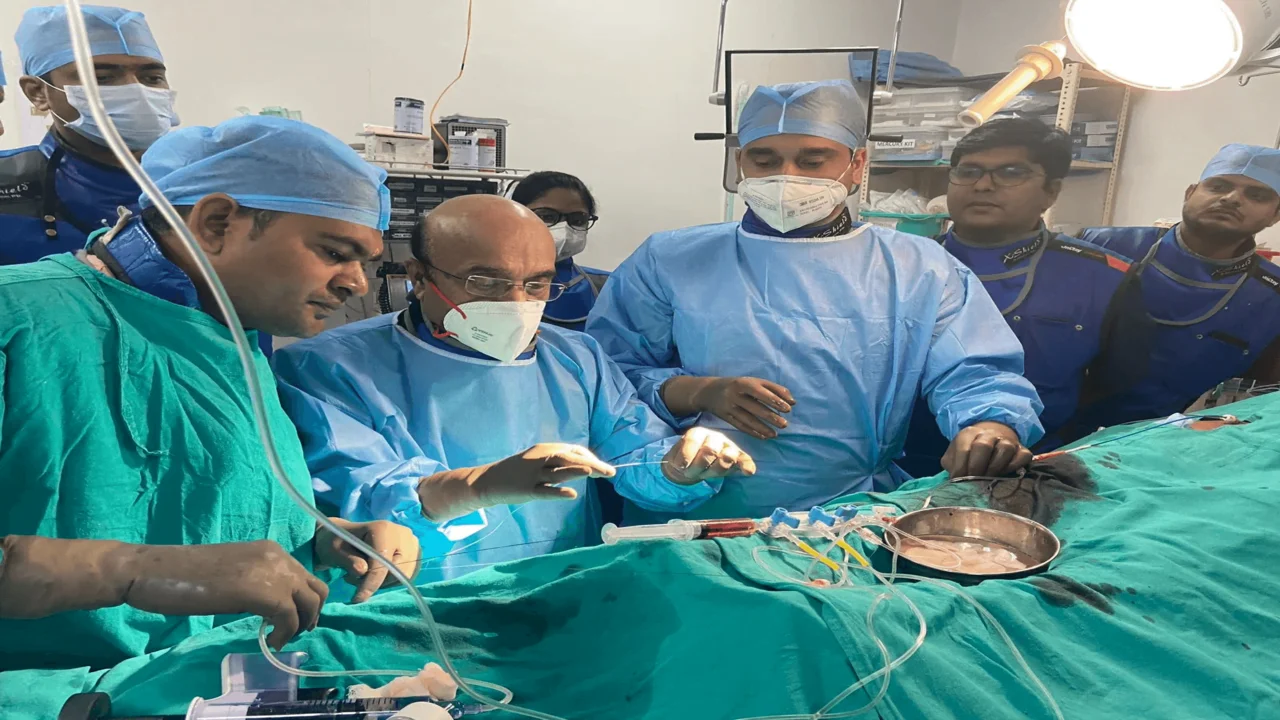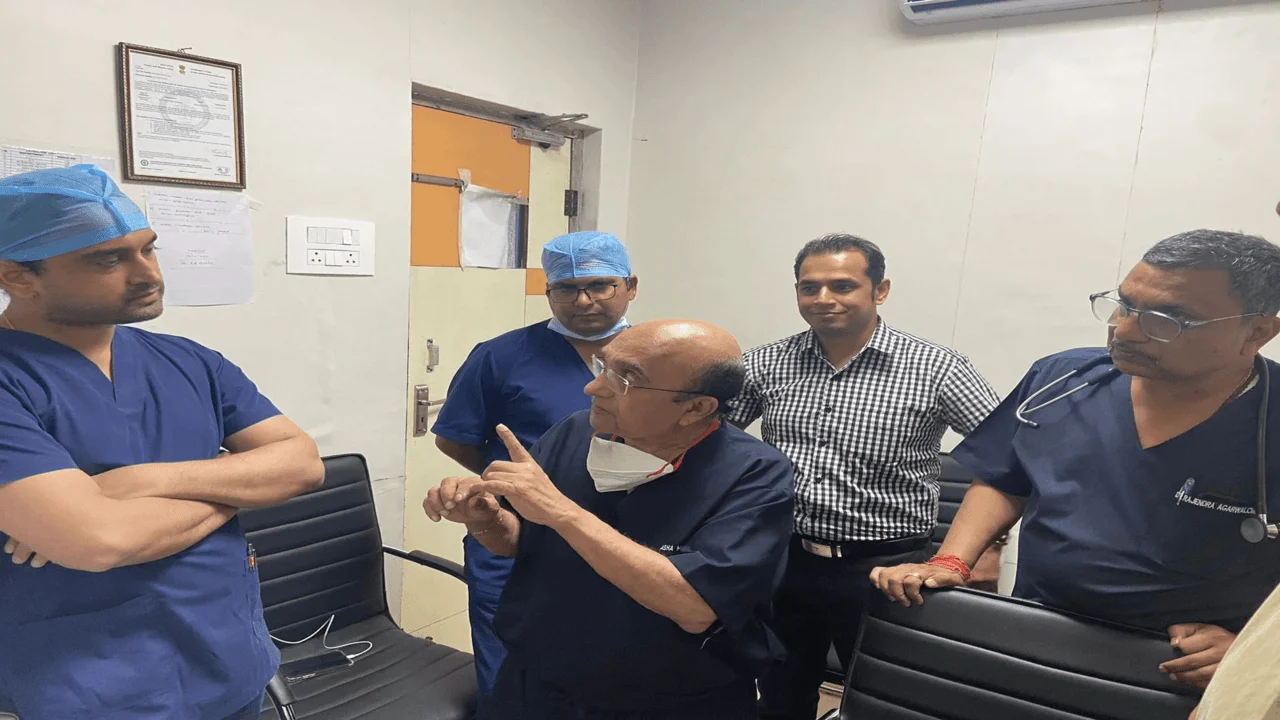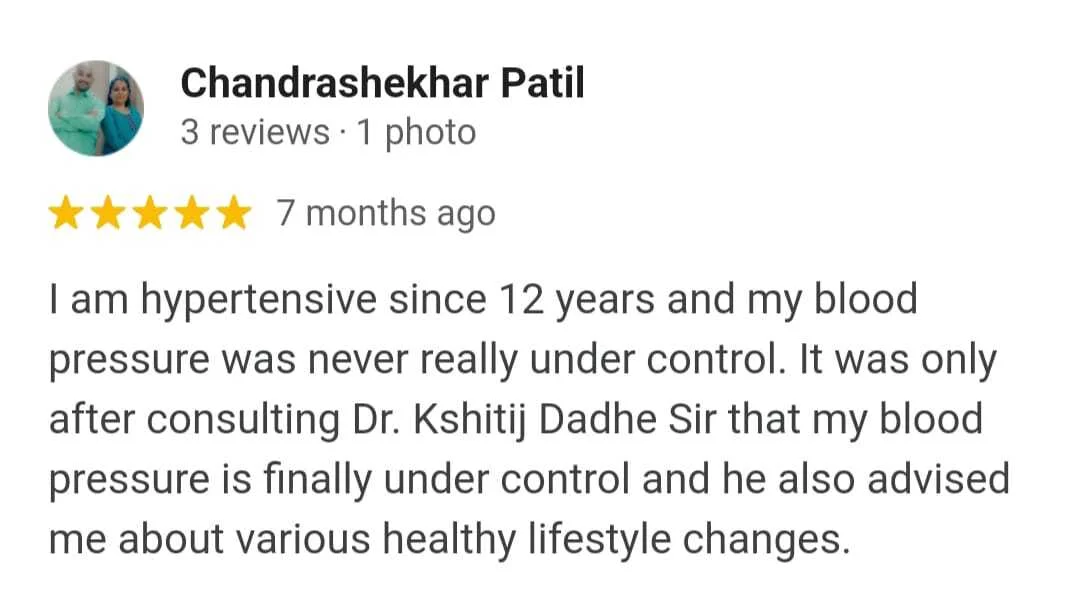Coronary angiography is a diagnostic procedure that involves the use of contrast dye and X-rays to visualize the blood vessels supplying the heart (coronary arteries). This test helps cardiologists assess the presence of blockages, narrowing, or other abnormalities in the coronary arteries, providing critical insights into the patient’s heart health. It is a key tool in determining the need for further interventions such as angioplasty or stent placement.
Sr. Consultant & Interventional Cardiologist
Consultant & Interventional Cardiologist at Avanti Institute of Cardiology Private Ltd, Nagpur
Consultant & Interventional Cardiologist at Asha Institute of Medical Sciences & Research, Kamptee, Nagpur.
Meet Dr.Kshitij Dadhe, your trusted Cardiologist in Nagpur, Maharashtra with over 11 years of experience. As a skilled practitioner, he has successfully performed 600+ coronary angioplasties as the primary operator, 50+ single chamber permanent pacemakers, 25+ double chamber permanent pacemakers, 100+ primary coronary angioplasties & ICD, ensuring your heart receives expert care and precision. His areas of expertise include coronary angioplasty, left main PCI, bifurcation PCI, OCT, Rotablation, TAVI/TAVR, CRT, Device of Closure of ASD/VSD/PDA, coronary angiography, pacemaker implantation. Bringing expertise and compassion to every heartbeat, Dr.Kshitij Dadhe is dedicated to your cardiovascular well-being.
Your Heart is in Caring Hands.
Sr. Consultant & Interventional Cardiologist
Consultant & Interventional Cardiologist at Avanti Institute of Cardiology Private Ltd, Nagpur
Consultant & Interventional Cardiologist at Asha Institute of Medical Sciences & Research, Kamptee, Nagpur.

Meet Dr.Kshitij Dadhe, your trusted Cardiologist in Nagpur, Maharashtra with over 11 years of experience. As a skilled practitioner, he has successfully performed 600+ coronary angioplasties as the primary operator, 50+ single chamber permanent pacemakers, 25+ double chamber permanent pacemakers, 100+ primary coronary angioplasties & ICD, ensuring your heart receives expert care and precision. His areas of expertise include coronary angioplasty, left main PCI, bifurcation PCI, OCT, Rotablation, TAVI/TAVR, CRT, Device of Closure of ASD/VSD/PDA, coronary angiography, pacemaker implantation. Bringing expertise and compassion to every heartbeat, Dr.Kshitij Dadhe is dedicated to your cardiovascular well-being.
Your Heart is in Caring Hands.
Sr. Consultant & Interventional Cardiologist
Consultant & Interventional Cardiologist at Avanti Institute of Cardiology Private Ltd, Nagpur
Consultant & Interventional Cardiologist at Asha Institute of Medical Sciences & Research, Kamptee, Nagpur.
Meet Dr.Kshitij Dadhe, your trusted Cardiologist in Nagpur, Maharashtra with over 11 years of experience. As a skilled practitioner, he has successfully performed 600+ coronary angioplasties as the primary operator, 50+ single chamber permanent pacemakers, 25+ double chamber permanent pacemakers, 100+ primary coronary angioplasties & ICD, ensuring your heart receives expert care and precision. His areas of expertise include coronary angioplasty, left main PCI, bifurcation PCI, OCT, Rotablation, TAVI/TAVR, CRT, Device of Closure of ASD/VSD/PDA, coronary angiography, pacemaker implantation. Bringing expertise and compassion to every heartbeat, Dr.Kshitij Dadhe is dedicated to your cardiovascular well-being.
Your Heart is in Caring Hands.













































Coronary angioplasty, also known as percutaneous coronary intervention (PCI), is a therapeutic procedure used to treat narrowed or blocked coronary arteries. During angioplasty, a catheter with a deflated balloon is inserted into the narrowed artery, and the balloon is inflated to widen the vessel and improve blood flow to the heart. In many cases, a stent (a small mesh tube) is also placed to help keep the artery open. This minimally invasive procedure can alleviate symptoms of angina and reduce the risk of a heart attack.
Pacemaker implantation is a surgical procedure where a small device is placed under the skin, usually in the chest, to regulate the heartbeat. It uses electrical impulses to help the heart maintain a regular rhythm, especially in cases of slow or irregular heartbeats.
Implantable Cardioverter Defibrillator (ICD) implantation involves placing a device under the skin to monitor and regulate heart rhythms. It is equipped to deliver electric shocks to restore normal heartbeats in case of dangerous arrhythmias or life-threatening conditions.
Balloon Valvuloplasty is a non-surgical procedure to treat narrowed heart valves. A catheter with a balloon at its tip is inserted into the narrowed valve, and when inflated, it widens the valve opening, relieving obstruction and improving blood flow.
Device closure is a minimally invasive procedure to treat certain congenital heart defects. It involves using a catheter to deploy a closure device, such as a septal occluder, to close abnormal openings in the heart, avoiding the need for open-heart surgery.
Device closure is a minimally invasive procedure to treat certain congenital heart defects. It involves using a catheter to deploy a closure device, such as a septal occluder, to close abnormal openings in the heart, avoiding the need for open-heart surgery.
Rotablation is a catheter-based procedure used to treat heavily calcified coronary arteries. A tiny, rotating burr at the catheter’s tip grinds away calcium deposits, facilitating better blood flow and improving the success of subsequent interventions like angioplasty and stent placement.






ECG is a common diagnostic test that records the electrical activity of the heart over a specific period. Electrodes placed on the skin detect the heart’s electrical impulses, producing a visual representation (ECG tracing) that helps healthcare professionals assess the heart’s rhythm and detect abnormalities.
2D Echo (Two-Dimensional Echocardiography) uses ultrasound to create detailed images of the heart’s structure and function. Doppler is often combined with 2D Echo to assess blood flow through the heart and blood vessels, providing valuable information about the heart’s health and identifying potential issues.
Holter monitoring involves wearing a portable device that continuously records the heart’s electrical activity over 24 to 48 hours or longer. It helps diagnose irregular heart rhythms and assess how the heart responds to daily activities, providing a more comprehensive view than a standard ECG.
Ambulatory Blood Pressure Monitoring (ABPM) is a method of measuring blood pressure at regular intervals over a 24-hour period. It provides a more accurate representation of a person’s blood pressure variations throughout the day, helping healthcare professionals better manage hypertension.
Electronic Medical Records involve the digital documentation of patient health information, including medical history, diagnoses, medications, and treatment plans. EMRs streamline healthcare processes, improve data accuracy, and enhance communication among healthcare providers.
Seeking a Second Opinion involves consulting another healthcare professional to validate or gain additional insights into a diagnosis or treatment plan. It empowers patients to make informed decisions about their healthcare and ensures a comprehensive understanding of their medical situation.

Given at the hands of Mrs. Anandiben Patel, honorable Governor of Uttar Pradesh

Given at the hands of Dr. Balram Bhargava, then Director General of Indian Council of Medical Research (ICMR)
Depending on the type of heart condition you are dealing with, you may experience various heart disease symptoms

